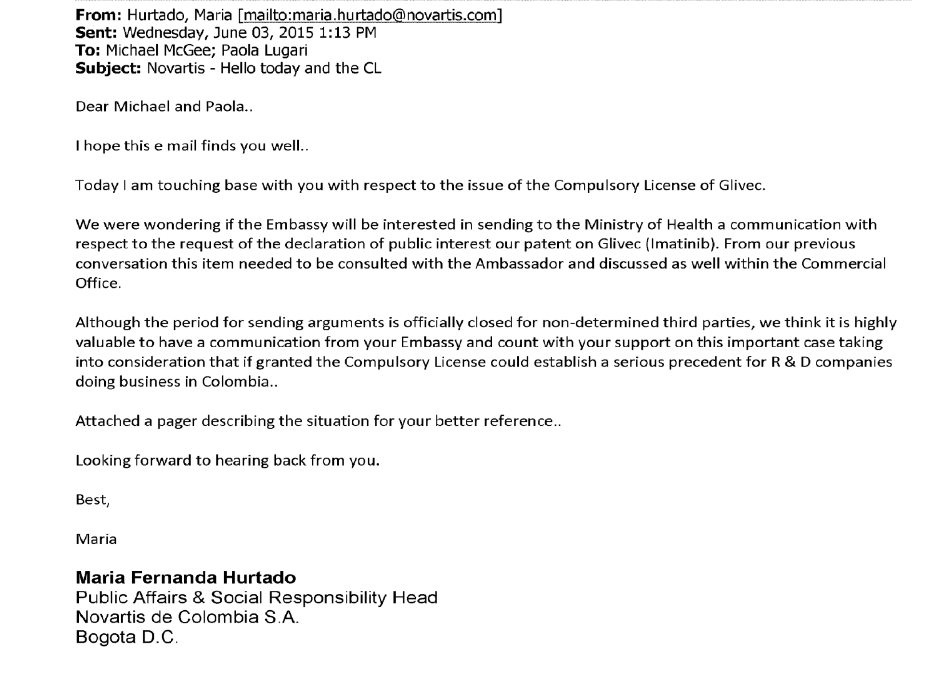In February 2016, KEI submitted a FOIA to USTR requesting “all correspondence and notes sent internally by the Office of the US Trade Representative as well as with Colombian government officials, other foreign government officials, and non-governmental persons or entities regarding efforts in the government of Colombia to issue compulsory licenses on medical technologies. Of particular interest is any correspondence, documents, memoranda, presentations, or talking points regarding the request for a compulsory licenses on the drug imatinib (marketed by Novartis as Gleevec or Glivec), a chemotherapy drug used to treat leukemia.”
KEI received the response to this FOIA from USTR on June 5, 2017. Among the documents returned was an email of June 3, 2015 from Maria Fernanda Hurtado, the Public Affairs and Social Responsibility Head for Novartis de Colombia, S.A., to Michael McGee and Paola Lugari of the Department of Commerce, requesting that the U.S. Embassy send a communication to the Colombian Ministry of Health to discourage the compulsory license that was then under consideration for the leukemia drug Glivec. The email attaches, for reference, the controversial letter sent by Switzerland’s Ambassador, Livia Leu, to the Ministry of Health on May 26, 2015, and notes that although the formal comment period was closed, Novartis “thinks it is highly valuable to have a communication from your Embassy and count with your support on this important case taking into consideration that if granted the Compulsory License could establish a serious precedent for R&D companies doing business in Colombia.”
Paola Lugari then forwards this email to Angel Ventling and Laura Ebert, who then forwarded to Christine Peterson as the “IPR expert” at the Department of Commerce, who then forwarded the email chain to Leslie O’Connor at USTR.

Germán Holguín, General Director of Misión Salud in Colombia, stated: “This is a demonstration of what we, the organizations that requested the declaration of public interest for imatinib towards a compulsory license, found along the process. Pharmaceutical corporations use all resources available, both legitimate and illegitimate, in order to block the possibility that countries, such as Colombia, exercise their right to issue compulsory licenses, including a unified pressure as a block (“R&D companies doing business in Colombia”) that prioritizes its interests against the health of the population of the specific country.”